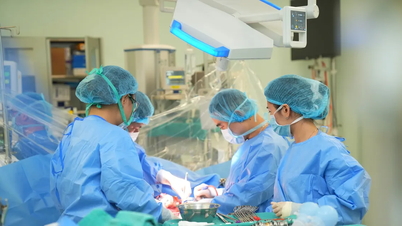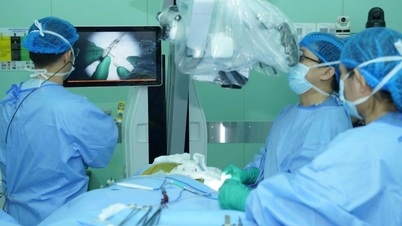The four-hour surgery, performed on March 16 on a 62-year-old male patient with end-stage renal disease, marked an important milestone in efforts to create a more readily available organ supply for transplants, according to MGH.

Massachusetts General Hospital, where doctors transplanted a genetically modified pig kidney into a 62-year-old patient. Photo: AP
The hospital said the pig kidneys used for the transplant were genetically modified to remove harmful pig genes and add certain human genes. The patient, Richard Slayman, 62, of Massachusetts, is recovering well at MGH and is expected to be discharged soon.
Pig kidneys have been transplanted into brain-dead patients before. Mr. Slayman is the first living patient in the world to receive a genetically modified pig kidney.
Mr Slayman, who has Type 2 diabetes and high blood pressure, received a kidney transplant in 2018 but it began to fail after five years, forcing him to undergo dialysis.
Sharing the reason for agreeing to receive a pig kidney transplant, Mr. Slayman said: "This is not only a way to help me, but also a way to bring hope to thousands of people who need kidney transplants to survive."
The shortage of transplant organs is a worldwide problem. At MGH alone, there are more than 1,400 patients on the kidney transplant waiting list.
"We hope this transplant will save the lives of millions of kidney failure patients around the world," said Dr. Tatsuo Kawai, a member of the team that performed the surgery.
Transplanting organs from one species to another is a growing field called xenotransplantation. According to nephrologist Dr. Winfred Williams, an abundant supply of transplant organs thanks to technological advances could provide a functioning kidney for all kidney failure patients who need it.
In addition to kidneys, the US also transplanted pig hearts into two patients, but both died after less than two months.
Hoai Phuong (according to AFP)
Source
































































































![Dong Nai OCOP transition: [Part 2] Opening new distribution channel](https://vphoto.vietnam.vn/thumb/402x226/vietnam/resource/IMAGE/2025/11/09/1762655780766_4613-anh-1_20240803100041-nongnghiep-154608.jpeg)













Comment (0)